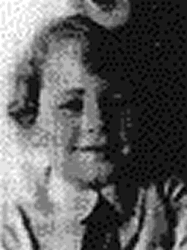The Life of Simcha Frumkin
Born May 11, 1930
Kovno, Lithuania Simcha,
the only child of Nicholas and Zila (Oster) Frumkin, grew up in Kovno,
the capital of Lithuania. In 1939, approximately 40,000 Jews lived in
this important Jewish spiritual and cultural center. In 1940, Lithuania
was annexed by the Soviet Union. Kovno's large Jewish educational system,
with its social and cultural organizations, was shut down. Simcha's
mother and father had both attended university. His mother had spent
two years studying at the Sorbonne in Paris, and his father had earned
a degree in engineering. Mr. Frumkin made a good living for his family
as an automobile salesman before the war.
Kovno was occupied by the
Germans on June 24, 1941. Even before the German invasion, bands of
Lithuanians seized Jews on the streets and murdered them. The Germans
took charge of the massacre after seizing control of the city. Ten thousand
Jews were immediately murdered.
Simcha and his family, along with the remaining 30,000 Jews in Kovno,
were forced to move into a closed-off ghetto. Conditions were horrendous.
There was little food, no heat, horrible overcrowding, and disease-carrying
vermin were everywhere. The Germans murdered 12,000 ghetto residents
over the next three months. Most adults were put on forced labor, and
Simcha's father was in charge of the ghetto warehouse where the property
of the murdered was sorted.
On July 8, 1944, as the Russian
Army was approaching Kovno, the Germans began transferring the ghetto
population to concentration camps in Germany. Many went into hiding,
but the Germans used bloodhounds, smoke grenades, and firebombs to force
the Jews out into the open. Fourteen year-old Simcha was taken with
his father to the Dachau concentration camp.
Sent to work as slave laborers, moved to different camps in order to escape the Allied advance, Simcha and his father struggled to survive under horrendous conditions and with little food. Unable to walk, Simcha's father was sent to the barracks that served as a hospital where he died. Two weeks later, American troops entered the camp and fourteen year-old Simcha was liberated.
